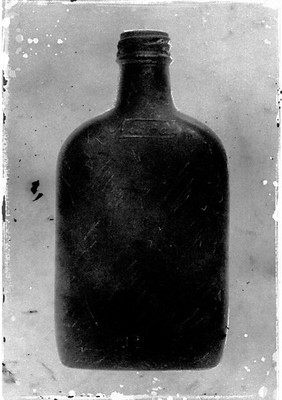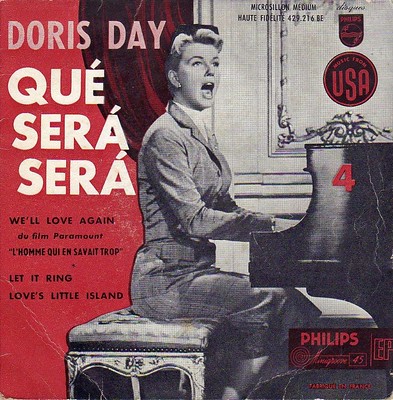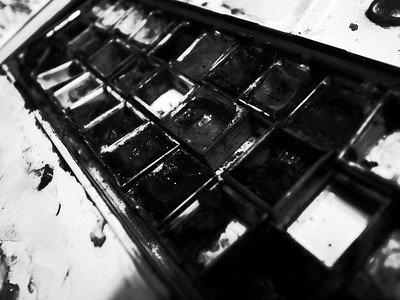by Ethan Velez
“I always hate when movies do that. It feels like, oh, I don’t know.” Tabs spoke with her hands. It was hard to keep them by her side.
“It’s always like, the fucking teacher in front of the class,” she went on. “His voice is fading because our protagonist isn’t paying attention. Meanwhile, he’s going on and on about the theme of the book they’re discussing which happens to also be the theme of the movie.”
Her hands clapped together, separated for emphasis, went up in the air to conclude her piece. Her cigarette smoke formed a line out the window.
Eduardo wanted to add, “Next teacher in a slasher is going to be teaching Frankenstein.” He did not.
“Are you all right?” she asked him.
There was nothing odd about a dizzy spell, so Eduardo only nodded. He sipped from a plastic cup of coffee he hated. He was sitting on Tabs’ bedroom floor, which he hated, while snow was beginning to brew outside, which he hated the most.
“So Midsommar, yeah?” Tabs asked.
“Yeah!” Eduardo answered. He hated everything else, but he loved Tabs.
Tabs found her USB in a bowl she kept on her desk. Her room was wide, clean, white. There were album posters and stacks of expensive sneakers she bought herself.
“Snow’s falling,” she declared, her eyes fixed on her screen. Eduardo lifted one of her linen curtains. She was right.
He wanted to ask Tabs how she knew. He did not.
Everything in Eduardo’s home was free of witches and ghosts. No monsters unless they were mentioned in a Saturday morning radio sermon. His home lacked lore. He hated it, but he loved his parents, and found middle ground in waiting until he was with Tabs to watch movies.
Eduardo said goodbye to Tabs when the movie ended and the snow began to settle. He forced himself to the L train with a jacket too thin to keep him warm.
In Eduardo’s neighborhood, the Russian Orthodox Church was a community landmark and just a few streets before his building. It was once large, dominant, and brick red. A color that reminded Eduardo of his old Sunday classrooms.
All that remained was disaster. A violent fire swallowed up everything it once was just months ago.
Eduardo breathed heavily and his skin itched. He rubbed his arms with his hands. It was a mistake to use a thin jacket. He could feel his throat tightening and waited for a clear crosswalk. He was allowed one step before the sirens of a FDNY truck jolted him back onto the sidewalk.
The sound ran down his ears. With it, he could imagine the sky, always dark before anyone was ready, taking long sips of smoke from the church’s steeple. Eduardo once saw the steeple as regal, only now it was a leering eye, judging him for walking away.
Eduardo dropped his keys at his front door, which he hated standing by. A faint sense of a threat loomed behind him. He thought he could smell smoke.
“¿Qué es esto?” Eduardo ‘s mother demanded when he was inside.
“It feels like someone is watching me,” he gave away. He shivered and couldn’t stop.
“God is always with you, mijo,” she comforted him, satisfied. She wore a dull pantsuit and smelled like her favorite perfume: flowery and dense. Her hair was long, dark like Eduardo’s, which she proudly claimed had never been cut until Eduardo’s father told him otherwise. She cut it often when she was sixteen.
“We have to go to church tonight, I’m speaking,” Eduardo’s father confirmed as he closed in. “Y tú también, mijo.”
Eduardo perked up.
“One day you’ll be preaching too.”
Eduardo saw his parents off and joined the quiet of the apartment. The four walls of his bedroom were painted an inexpensive tan. There were two small bookshelves on either side of a sharp and square coffee table. His bed was a twin, and nailed above it was a cross that always felt ill-placed.
“It’s too far to the left,” Eduardo’s mom had said years previously.
“It’s fine,” he said.
“Es bien,” his father added.
Eduardo studied the cross as his body shuddered. It was too long, with a sad color and honed corners. Yes, he thought, it was too long.
He made sure his heater was on, turned the lights off, and buried himself under his sheets.
“Everything hurts too much, it’s too cold,” he wanted to yell. He didn’t.
Instead, Eduardo thought about his father preaching. He thought about Tabs and her wicked, thrilling movies. About the fire. The night the church burned down was, all things considered, a peaceful night. “ELECTRIC ISSUE?” flashed through TV screens that morning, videos of scorched walls and black wood circulated on Twitter, and by evening it was well behind everyone.
Eduardo didn’t see any of it. What he did see (for the brief moments before it went dark) were his limbs stretching beyond him, blurring yellow lights, and the buildings in his neighborhood shrinking.
He forced his eyes shut and listened as the wind knocked the front door back and forth in its frame. It was furious. Like someone on the other side needed to get in.
Eduardo listened until he couldn’t. He focused on the dark in his eyes until he couldn’t see. In succession each sense plummeted until, without warning, an ache shot through his body.
It was warm. And then it was numb.
“Did you see the way she just gave in?” Tabs asked Eduardo the next morning. She often needed some hours after a movie to really comprehend her thoughts on it. “She’s hurt, but then she gives in.”
Eduardo nodded with his phone on his ear.
“I like Midsommar more,” Tabs continued. “because in the end, your family is going to fuck your shit up. They’re programmed that way. But in Midsommar, she’s saved. In Hereditary, everybody just dies.”
Eduardo made a face Tabs couldn’t see. “That makes sense, actually.”
Read Some Questions for Ethan Velez.
Ethan Velez is a Manhattan native, sculptor, writer, and amateur bartender. His work is inspired by Italian horror movies of the 70’s and his mom.
Image credit: “church,” bigoneep. Flickr CC BY-NC 2.0.






